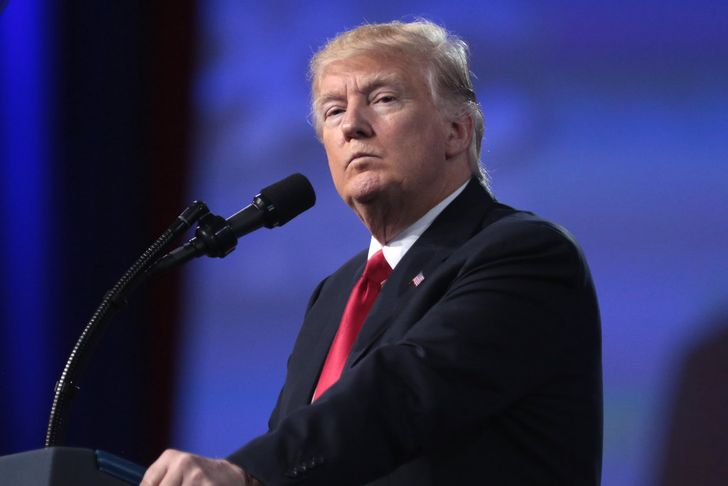In the midst of the rapidly increasing spread of COVID-19 (also referred to as the coronavirus), Donald Trump has drawn criticism for referring to the virus as the "Chinese Virus." He used the term this past week in a tweet following his speech about social distancing, although this instance was not the first time he has used it. Other Republican lawmakers have also been criticized for calling the virus the "Chinese coronavirus" or the "Wuhan coronavirus."
When asked about his use of the term "Chinese virus" in a press briefing, Trump defended himself by stating, "I have to call it where it came from. It did come from China, so I think it's a very accurate term." Trump argues that he can call the virus the "Chinese virus" since the virus first appeared in China, but his argument completely ignores the core issue here. This is not a matter of being "accurate" (although the more "accurate term" would still be COVID-19 as advised by the CDC and WHO), and Trump certainly doesn't "have to" refer to the coronavirus as the "Chinese virus." No one is forcing him to do so, and calling the virus COVID-19 or coronavirus doesn't exactly require any extra effort.
The main issue with people, especially our own president and lawmakers, referring to the virus as the "Chinese virus" or the "Wuhan virus" or any other variation is that these terms immediately connect the virus to Chinese people, not just the country. And in countries like the United States, it's not just the Chinese diaspora being implicated: the outbreak of COVID-19 has led to a wave of anti-Asian racism in the United States, and anyone who might pass as Chinese can be targeted. Some even blame Chinese people for the spread of the virus and purposefully avoid anyone they think might be Chinese, falsely assuming that all Chinese people or all Asians have the virus. Trump's calling COVID-19 the "Chinese virus" only validates these assumptions, especially in his position as president.
The racism faced by Asian Americans during this pandemic is very real, and Trump completely fails to acknowledge this fact. Asian Americans have been discriminated against and harassed or even assaulted: victims of hate crimes in the wake of COVID-19 include a woman who was spit on and assaulted in Manhattan and another woman was punched for not wearing a face mask. In other incidents of harassment, a video surfaced in which an elderly Asian woman was chased by a man with a bottle of Purell and Chinese international students had eggs thrown at them at the University of Virginia. Additionally, Asian-American businesses have been struggling since the outbreak due to racial bias amidst coronavirus fears. These are only a few of many examples. Asian Americans have faced a widespread increase in racism across the country, and Trump's continuing to refer to COVID-19 as the "Chinese virus" is insensitive to the current experiences of Asian Americans.
Labeling COVID-19 with an ethnicity is completely unnecessary and only encourages the ongoing anti-Asian racism in the United States and other countries with Asian diasporic populations. The virus itself does not have an ethnicity: anyone can contract or carry COVID-19, not just Chinese people or Asians. This is a very uncertain time, with COVID-19 impacting the lives of people on a global scale. Everyone has been impacted and everyone is facing the consequences of the virus. There is no need to try to place blame on anyone or discriminate against anyone. Donald Trump needs to acknowledge the impact his words can have, especially when Asian Americans are currently facing an increase in racism and discrimination.






 The minimum wage is not a living wage.
StableDiffusion
The minimum wage is not a living wage.
StableDiffusion
 influential nations
StableDiffusion
influential nations
StableDiffusion







